Final Words: Abdulmajeed Mohammed Al Shujaa Researches Oral Pain
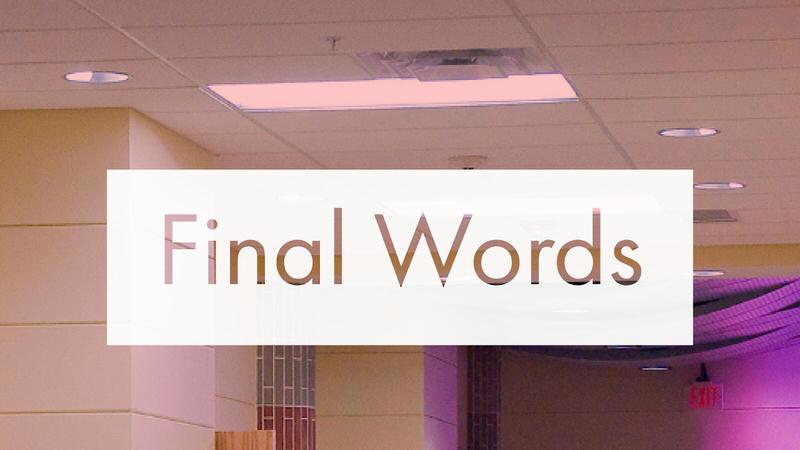
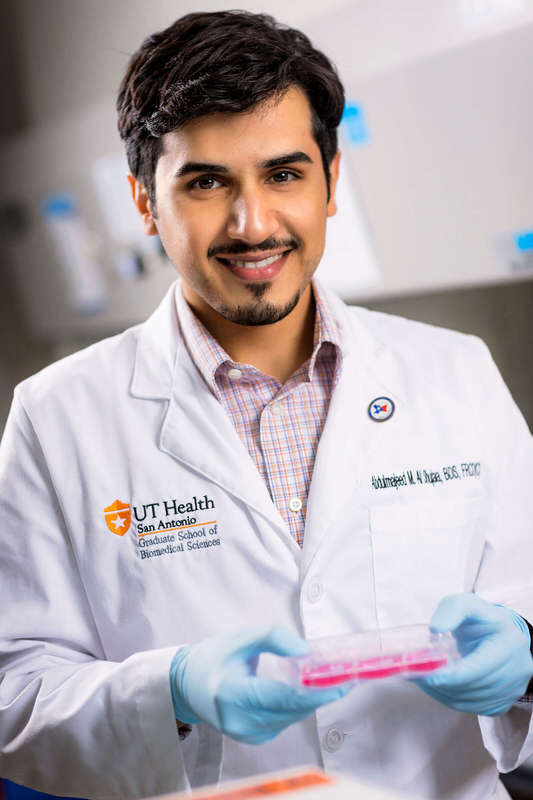 Your name, program, dissertation title.
Your name, program, dissertation title.
Abdulmajeed Mohammed Al Shujaa, Master of Science in Dental Science, track of Endodontics.
Dissertation title: “Endogenous Peripheral Pain Regulatory Systems in Orofacial Pain Patients”
Please tell me about yourself, why did you pick UT Health Science Center, and your program.
I was born and raised in Riyadh, Saudi Arabia. In 2011, I received a Bachelor degree in Dental Medicine and Surgery (BDS) from King Saud University in Riyadh, Saudi Arabia. In 2012, I joined the Department of Dentistry at King Fahad Medical City in Riyadh as a general dentist. This tertiary-care hospital gave me the opportunity to study abroad and pursue higher education. UT Health San Antonio has always been one of my top schools to pursue advanced education in Endodontics.
Our department here is one of the best in the nation because it has strong clinical 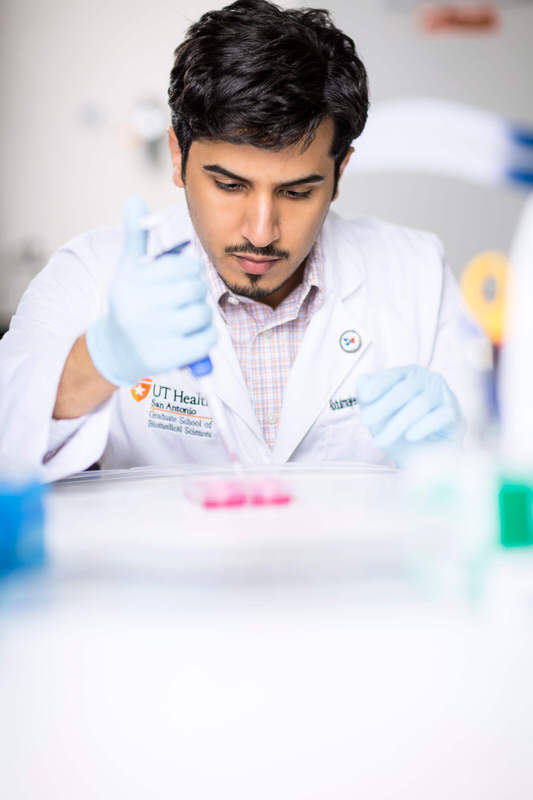 residency program as well as research activities. Our lab is of great renown in pain and stem cells regenerative therapy with emphasis in translational research. In 2014, I was fortunate enough to start a one-year internship in the Department of Endodontics at UT Health San Antonio. This internship had provided me with a very rich experience which underscored my desire to pursue my education journey. In 2017, I received the certificate in Endodontics and, Next month I will graduate from the Master of Science in Dental Science program.
residency program as well as research activities. Our lab is of great renown in pain and stem cells regenerative therapy with emphasis in translational research. In 2014, I was fortunate enough to start a one-year internship in the Department of Endodontics at UT Health San Antonio. This internship had provided me with a very rich experience which underscored my desire to pursue my education journey. In 2017, I received the certificate in Endodontics and, Next month I will graduate from the Master of Science in Dental Science program.
Please provide a few sentences summarizing your dissertation. What was the experience like for you?
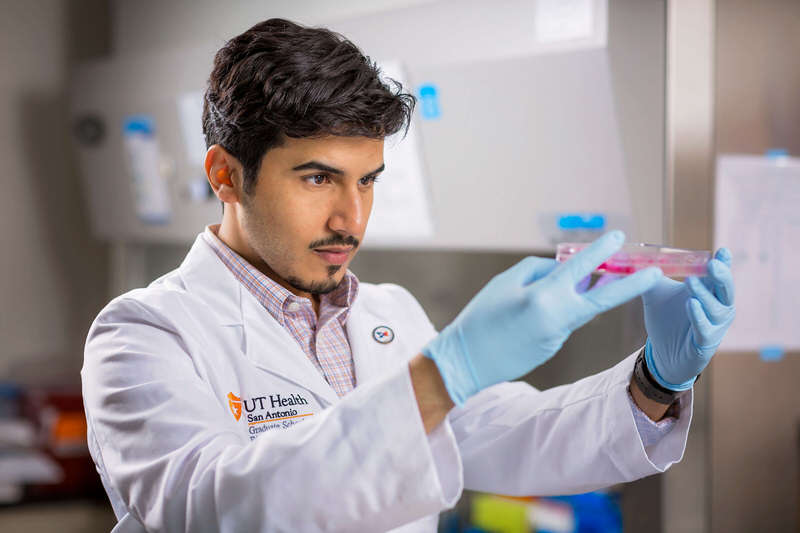 Patients present to our clinic with an acute or chronic inflammatory lesion around the apex of a tooth root (AKA apical periodontitis) which is usually caused by bacterial invasion of dental pulp and it could be either symptomatic (i.e. painful) or not. However, up to date, there is a dearth of knowledge in understanding the pain mechanism controlling this dissimilar manifestation. Endogenous opioids are well known in alleviating pain. My dissertation was focused on evaluating the presence and role of endogenous opioids in modulating pain mechanisms in lesions from teeth with symptomatic and asymptomatic apical periodontitis. We also used a mouse model to further characterize our findings from the patient’s samples. We found that patients with asymptomatic apical periodontitis showed local increased levels of one of the opioid peptides namely;
Patients present to our clinic with an acute or chronic inflammatory lesion around the apex of a tooth root (AKA apical periodontitis) which is usually caused by bacterial invasion of dental pulp and it could be either symptomatic (i.e. painful) or not. However, up to date, there is a dearth of knowledge in understanding the pain mechanism controlling this dissimilar manifestation. Endogenous opioids are well known in alleviating pain. My dissertation was focused on evaluating the presence and role of endogenous opioids in modulating pain mechanisms in lesions from teeth with symptomatic and asymptomatic apical periodontitis. We also used a mouse model to further characterize our findings from the patient’s samples. We found that patients with asymptomatic apical periodontitis showed local increased levels of one of the opioid peptides namely; 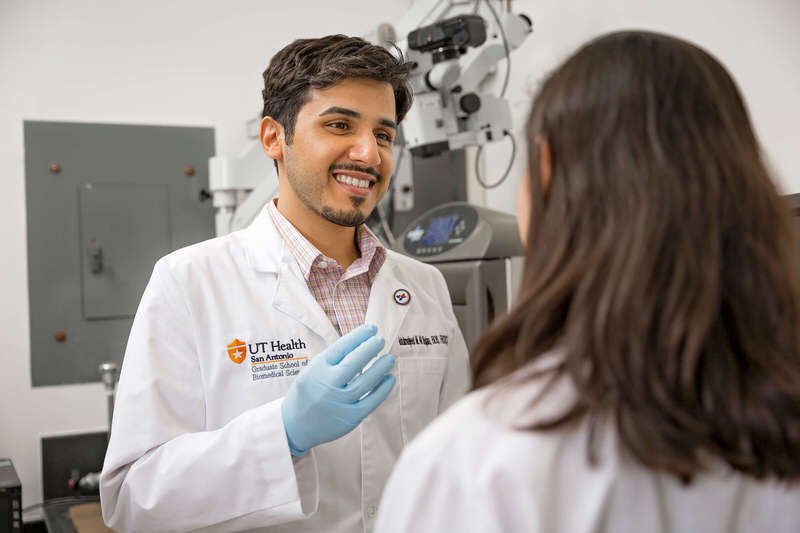 β-endorphin compared to patients with symptomatic lesions. Additionally, we showed that immune cells are the likely source of the local expression of opioid peptides within the lesion. This unprecedented findings will expand our understanding of the pain mechanisms in apical periodontitis and will lead to the development of potential therapeutic targets in the future for effective pain management.
β-endorphin compared to patients with symptomatic lesions. Additionally, we showed that immune cells are the likely source of the local expression of opioid peptides within the lesion. This unprecedented findings will expand our understanding of the pain mechanisms in apical periodontitis and will lead to the development of potential therapeutic targets in the future for effective pain management.
This journey has been full of challenges, brainstorming as well as 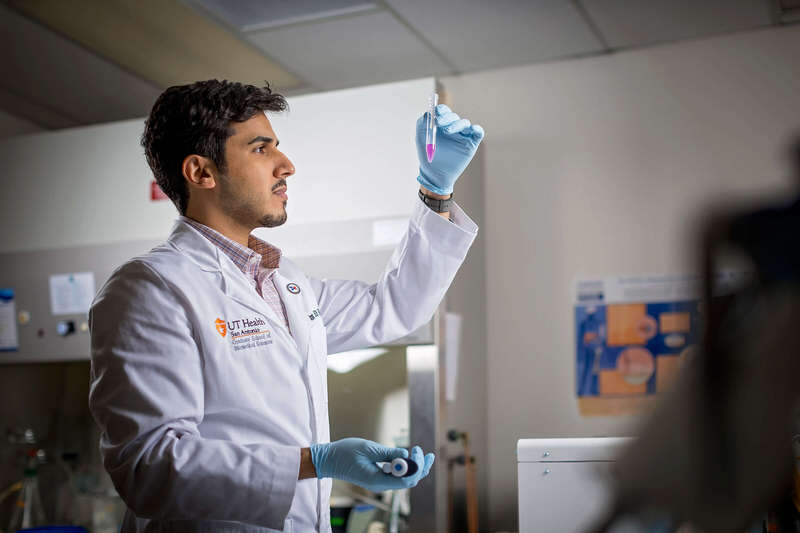 troubleshooting. It has actually taken my research skills to a different level and has encouraged me more to think outside the box. Therefore, I am so grateful to my mentor Dr. Nikita Ruparel who made this experience much more enjoyable by her positiveness, continuous support and guidance. I also would like to thank our research assistant Claudia Espitia who has spent a lot of her time helping me throughout this wonderful journey.
troubleshooting. It has actually taken my research skills to a different level and has encouraged me more to think outside the box. Therefore, I am so grateful to my mentor Dr. Nikita Ruparel who made this experience much more enjoyable by her positiveness, continuous support and guidance. I also would like to thank our research assistant Claudia Espitia who has spent a lot of her time helping me throughout this wonderful journey.
Why are you passionate about your research topic?
Pain is one of the main reasons why patients seek oral health care; it is even more pronounce in endodontic practice. Pain physiology is very complex yet intriguing, and as an endodontist, I have the passion to further study this area and translate the findings to our daily patient care to better serve our population.
What has been the highlight of graduate school so far? Have you won any awards or have there been any achievements you’ve been proud of?
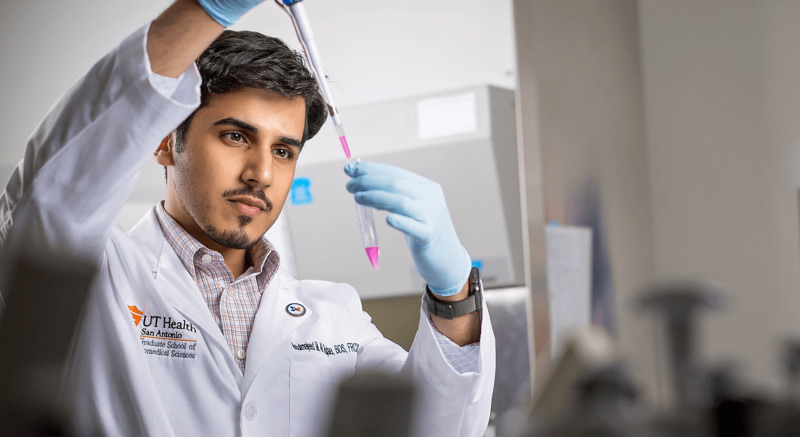 In 2017, I was awarded a grant from the American Association of Endodontists Foundation (AAEF) to fully fund and support my research proposal which was recognized as the highest scientific scored proposal for that year. Also, I was able to present my research work at the 2017 annual scientific meeting of American Association of Endodontists (AAE 17) and I was honored to receive the prestigious third place Dentsply competitive research award.
In 2017, I was awarded a grant from the American Association of Endodontists Foundation (AAEF) to fully fund and support my research proposal which was recognized as the highest scientific scored proposal for that year. Also, I was able to present my research work at the 2017 annual scientific meeting of American Association of Endodontists (AAE 17) and I was honored to receive the prestigious third place Dentsply competitive research award.
What’s next?
My plan is to go back to King Fahad Medical City, Riyadh, Saudi Arabia to provide the community with the best healthcare service. Also, I would like to contribute to the reform and improvement of the health and education sectors in my country.
Any advice for your fellow graduate students?
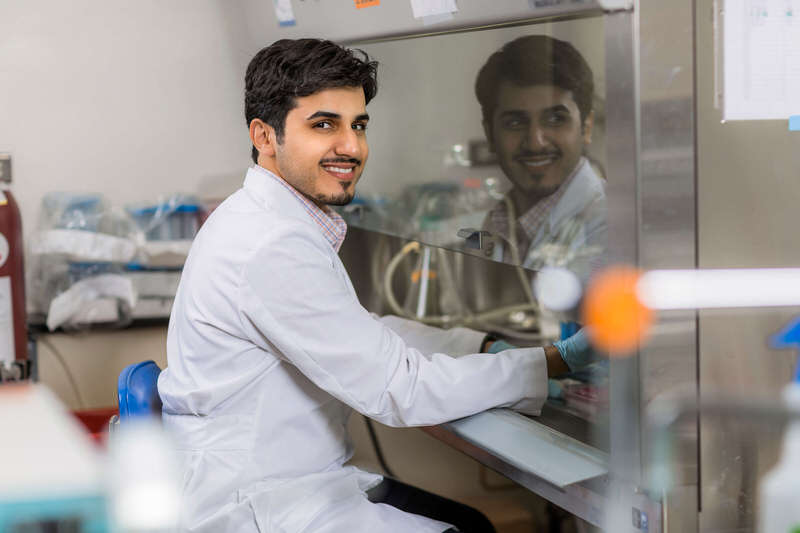 Always do your best, and be optimistic. Be prepared for the worst, because some of the greatest catastrophes in graduate education could have been avoided by a little intelligent foresight. On the other hand, don’t be scared to take any risk, because “Only those who will risk going too far can possibly find out how far one can go.”
Always do your best, and be optimistic. Be prepared for the worst, because some of the greatest catastrophes in graduate education could have been avoided by a little intelligent foresight. On the other hand, don’t be scared to take any risk, because “Only those who will risk going too far can possibly find out how far one can go.”
